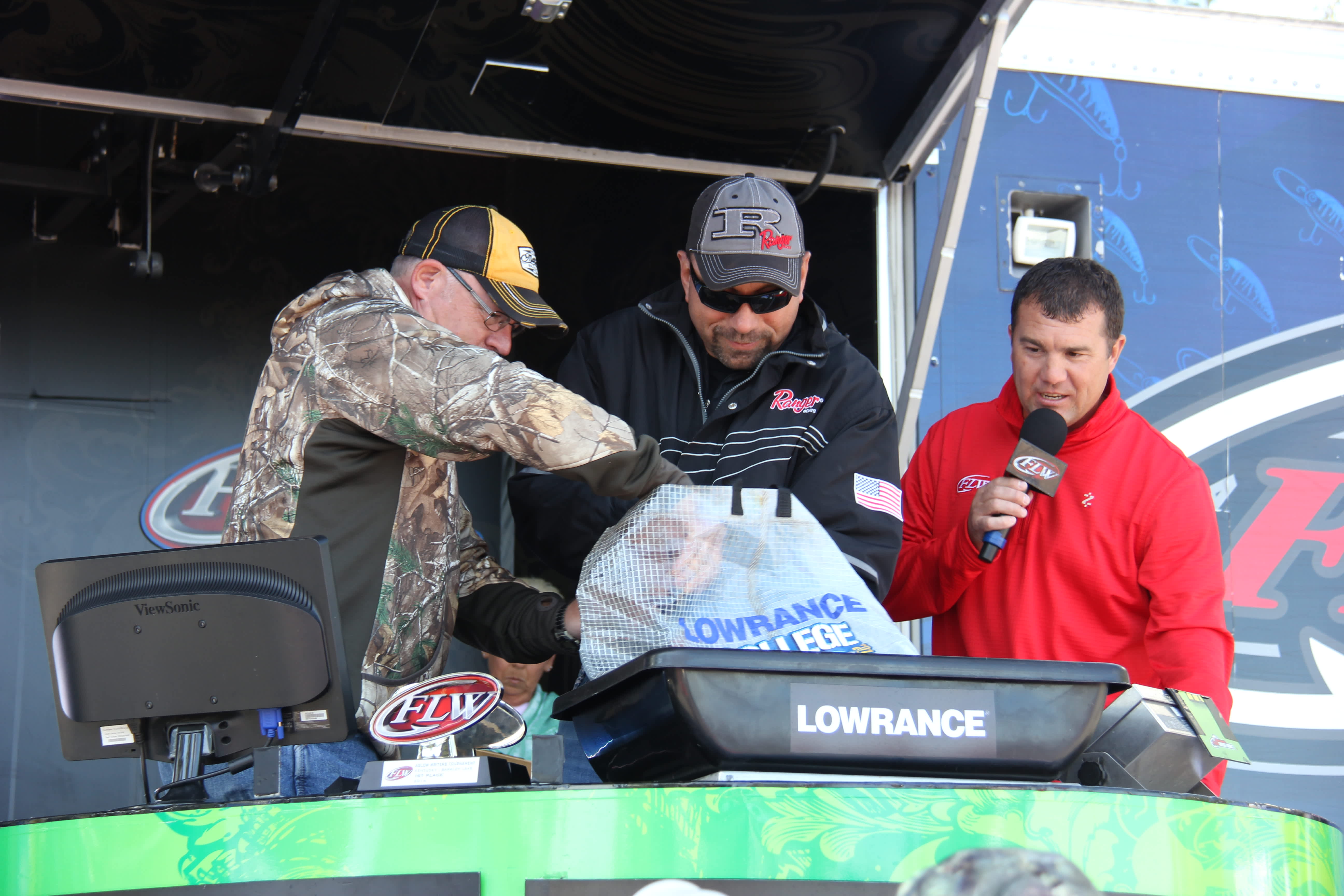How to Sign a Fishing Sponsor
Bernie Barringer 03.17.16

In the early 1990’s, Berkley was one of the fastest growing fishing tackle companies in the world. The release of Powerbait, improvements in fishing line, and a tremendous growth in tournament fishing were part of the fuel that drove Berkley’s growth, and they were buying up other companies, like ABU Garcia, Johnson and Fenwick. Berkley was also devoting a large budget to pay their pro-staff anglers to promote their products.
If you wanted to talk about sponsorship with Berkley at that time, you had to go through Barry Day. I sat in his office and he told me that he got as many as 60 requests for sponsorship a day. Some of them had substance to them, but the vast majority was from some guy who had just won a bass tournament somewhere and expected the sponsorship cash to just roll in. Those got a form letter saying, “thanks, but no thanks.”
I was fortunate to have Barry’s ear, and even spent a day in the boat with him, picking his brain. A decade later, when he went to work for Ranger Boats, also my sponsor, we would often meet again. And that’s a key thing about sponsorships, they are very relational, and marketing people move about within the industry. You better never burn bridges because it will come back to haunt you.
Back when I first spent that day in the boat with Barry, I was launching the Iowa Walleye Tournament Trail, which started humbly in 1994 with about 40 anglers at the first event, and grew into the Grand National Walleye Cup. By 2004, when we had 46 tournaments in eight states, four trucks and trailers, 1200 anglers and seven employees, we signed Gander Mountain to a six-figure contract making it the Gander Mountain Grand National Walleye cup. We added a show called Walleye Wisdom on the sportsman channel.
This couldn’t have happened without the help of sponsors. Every step of the way I learned more of the process and made some mistakes along the way. However, I’ll offer you the biggest key to cracking the sponsorship code: It’s not about what they can do for you, it’s all about what you can do for them. These companies are in business to make a profit, they are not charities. If you show them how you can help them increase their profits, you will have a mutually beneficial relationship with them.

That’s the point that Barry was making to me 20 years ago. All those applicants were asking for something rather than offering something. Sponsorship is a partnership where both parties benefit. If you don’t have something to offer, you aren’t going to get anything in return.
My friend Jim Kalkofen travelled a similar route. He was a pioneer in walleye tournament fishing. He launched the MWC when he was in marketing at Mercury Marine. It is still considered the granddaddy of walleye tournaments and has great respect with 30 years of operation. Jim has an extensive background in the tackle and marine industries so he has seen the sponsorship game from several sides.
Recently, Jim and I were discussing how a book should be written to help the angler who wants to fish for a living. Just like in the early 1990’s most anglers still do not understand the basics of approaching sponsors and creating value to them. Sponsors are interested in Return on Investment (ROI) and anglers who want a paycheck must give it to them.
The book that came out of that conversation is Get Paid to Fish – How to Catch and Keep Sponsors. It’s an ebook that incorporates our experiences plus offers input for about a dozen successful pro bass, walleye and crappie anglers. We walk the angler through the process and offer advice for each step of the way.
By now you have probably figured out that the name of the book is a bit of a misnomer. Companies do not actually pay you to fish, they pay you to help sell their stuff. This is likely to include sports show seminars, tournament finishes, appearances and interviews, working with writers, wearing their logos, product design, and the list goes on and on.

Is the hard work all worth it? I’ll let Kevin VanDam, who along with Al Lindner wrote forwards to the book, give you his opinion. “Being a professional angler has many rewards,” he said. “You will be your own boss. You will have more opportunities then you ever imagined. You will meet some of the greatest people in the world. This life can be yours. It is attainable…with hard work and knowing the rules of the road that are in this book, you will understand some of the next steps necessary for success.”
Most people would rather just go fishing, so sponsorship is not for them. But if a person is really willing to work at it, starts at the beginning and builds positive, mutually beneficial relationship, success is within reach of any angler.
Follow Bernie’s bowhunting adventures on his blog, bowhuntingroad.com.

